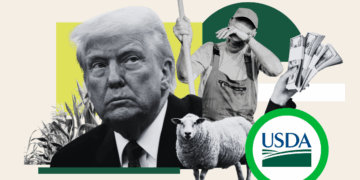The Trump administration’s decision to freeze federal funding has significantly disrupted agricultural research at prominent U.S. universities, including the University of California, Davis. Historically a global leader in agricultural science, UC Davis has been severely affected by halted research projects, laboratory closures, and an inability to secure new grants.
Poultry genetics research has ceased, vegetable and fruit experiments have been abandoned, and critical initiatives to assist small farms with crop loss insurance have been outsourced internationally due to the elimination of U.S. federal funding. The shutdowns affect millions in funds previously available through agencies like the United States Agency for International Development (USAID) and the U.S. Department of Agriculture (USDA).
Broader Implications and University Response
Researchers at UC Davis alone applied for approximately $2.75 billion in federal grants in fiscal year 2024, receiving about $441 million, underscoring the scale of federal involvement. Due to Trump’s executive orders, new grant applications are now suspended, jeopardizing future research and graduate student positions. UC President Michael Drake stated that while current student admissions remain valid, financial uncertainties have pushed some graduate programs to place prospective students on waitlists.
The White House defended the funding freeze as necessary for prioritizing the “America First” agenda and reducing government inefficiency. The State Department echoed this stance, citing alignment with national interests as justification.
Global Context and Long-Term Risks
Before the funding cuts, USDA data revealed a long-term decline in public agricultural research funding, reduced by a third over two decades. Current funding, approximately $5 billion annually, mirrors inflation-adjusted figures from the 1970s. Meanwhile, global competitors, notably China and Brazil, are significantly increasing their agricultural research investments. China has emerged as the world’s leading funder of agricultural R&D.
Experts warn that continued cuts in U.S. agricultural research funding could severely impact crop yields amid escalating climate pressures, potentially resulting in increased dependency on government bailouts. The Trump administration previously allocated around $217 billion to farmers during its first term through various support programs, marking a historical high when adjusted for inflation.
Major Breakthroughs from Previous Funding:
- Development of disease-resistant poultry genetics.
- Advances in crop resilience against climate change impacts.
- Significant contributions to global food security and agricultural innovation.












